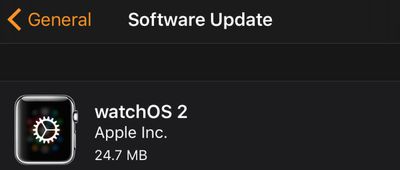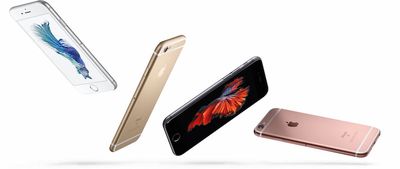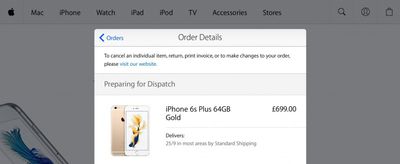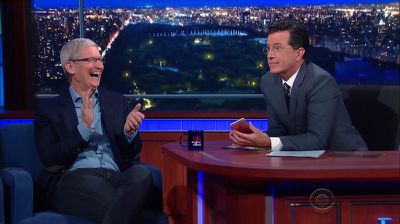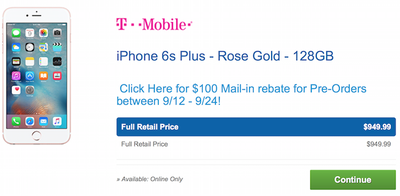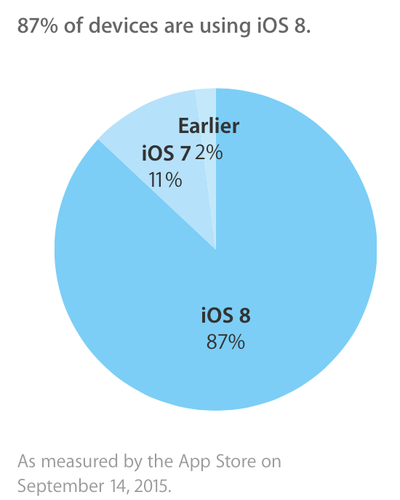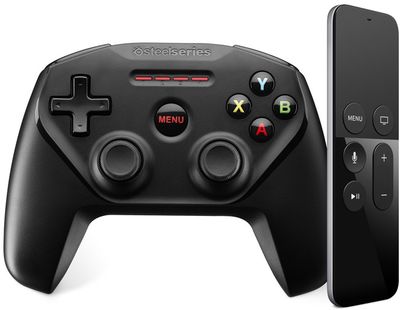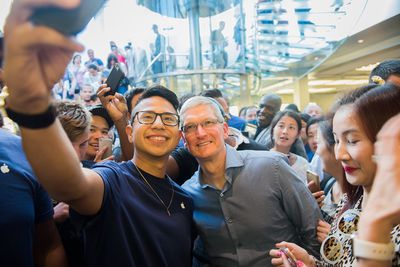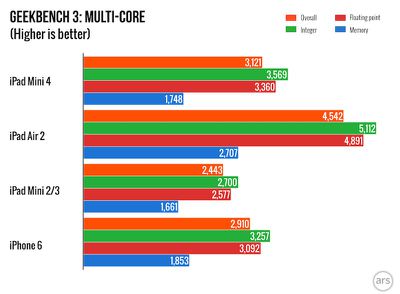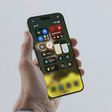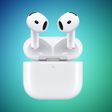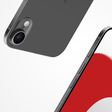Apple today released iOS 9 to the public, making the download available to all users who have an iPhone 4s or later, iPad 2 or later, 5th-generation iPod touch or later, or any iPad mini. The update can be downloaded through iTunes or over-the-air by going to the Settings app and tapping General --> Software Update.
As with all major software updates, it may take a few minutes for the update to propagate to all users due to high demand. Some users are seeing "Software Update Failed" messages and may have better luck installing via iTunes.
Public beta testers who have the iOS 9 golden master installed will receive the release version of iOS 9 over-the-air.
iOS 9 builds on content introduced with iOS 8, bringing subtle design changes, refined features, improved functionality, and performance enhancements. From Apple's release notes:
With this update your iPhone, iPad and iPod touch become more intelligent and proactive with powerful search and improved Siri features. New multitasking features for iPad allow you to work with two apps simultaneously, side-by-side or with the new Picture-in-Picture feature. And, built-in apps become more powerful with detailed transit information in Maps, a redesigned Notes app, and an all-new News app. And improvements at the foundation of the operating system enhance performance, improve security and give you up to an hour of extra battery life.
The operating system's biggest focus is on intelligence and proactivity, letting iOS devices learn user habits and act on that information, opening apps before we need them, making recommendations on places we might like, and guiding us through each day with new Siri and search features.
Many built-in apps have been improved, including Notes, Mail, and Maps, wihch has gained Transit directions. Apple Pay has been renamed to Wallet, and for the first time, iOS 9 brings split-screen multitasking features to the iPad.
In addition to these consumer-facing features, iOS 9 introduces significant under-the-hood improvements that will free up storage space and improve battery life. With battery optimizations, iOS devices have an additional hour of battery life, and a new Low Power mode can extend battery even further.
iOS updates take up less space in iOS 9, letting even devices with little storage space upgrade, and many app install sizes are smaller due to a feature called app thinning.
More information on iOS 9 can be found in our iOS 9 roundup, which includes details on major features and all of the little tweaks that were added throughout the beta testing period. Discussion of iOS 9's new features is also taking place in our dedicated iOS 9 forum, and we encourage all of our readers to join in with questions and new discoveries.
In addition to being released to the public today, iOS 9 will also come pre-installed on the iPhone 6s and the iPhone 6s Plus, which will be available beginning on Friday, September 25.
Make sure to check out our iOS 9 coverage:
- Inside iOS 9: Apple Maps Gains Transit Mode and Nearby Search
- iOS 9 Hidden Features: Settings Search, Selfie Folder, Home Sharing for Music, Go Back to App, and More
- Inside iOS 9: Notes Gains Checklists, Photos, Sketches and More
- Apple Debuts New Move to iOS App for Android
- Inside iOS 9: Apple News Delivers the Latest Stories to Your Device
- Inside iOS 9: Split-Screen Multitasking for the iPad
- Inside iOS 9: HomeKit Gains Simpler Set Up, Pre-Defined Scenes, Triggers and More
- Inside iOS 9: A More Intelligent OS With Proactive Suggestions and Siri Improvements
- Inside iOS 9: Under-the-Hood Improvements for Battery Life, Security, and More
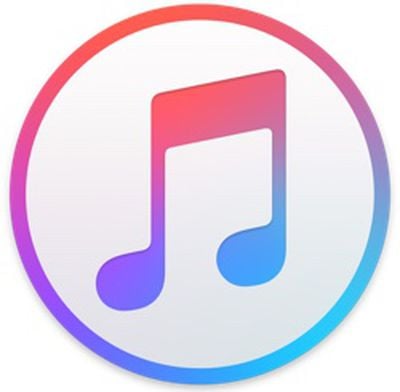 Apple today released iTunes 12.3, making the software compatible with the newly released iOS 9 update and the upcoming OS X El Capitan update, set to be released to the public on September 30.
Apple today released iTunes 12.3, making the software compatible with the newly released iOS 9 update and the upcoming OS X El Capitan update, set to be released to the public on September 30.

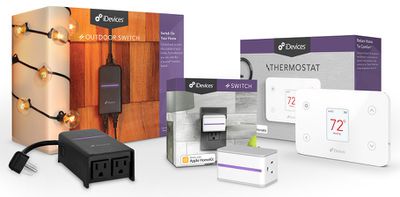
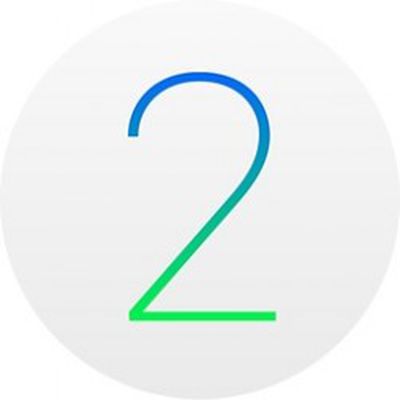 While Apple announced last week that it would be releasing iOS 9 and watchOS 2 to the public
While Apple announced last week that it would be releasing iOS 9 and watchOS 2 to the public 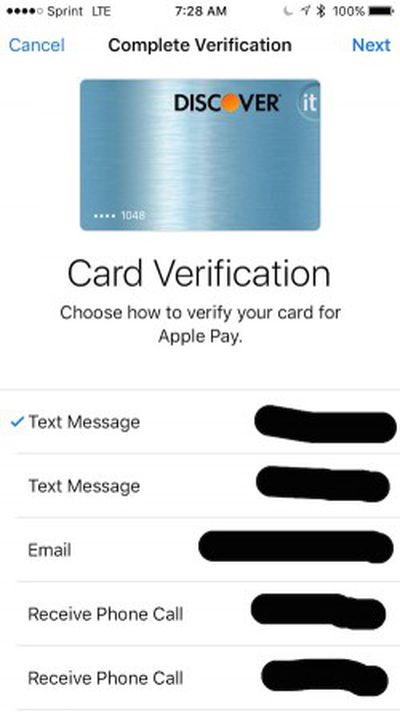 As promised
As promised 